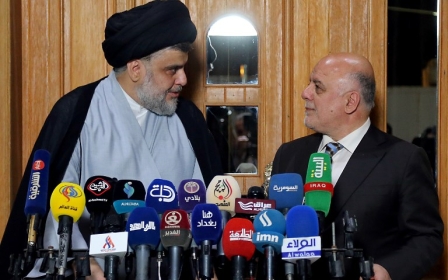Muqtada al-Sadr's alliance wins Iraqi election recount

The manual recount of votes cast in Iraq's May elections has been completed, with cleric Muqtada al-Sadr's alliance retaining all 54 of the seats it won.
With Sadr's Sairoon Alliance confirmed as winners of the legistlative election, a government can now be formed, almost three months after the polls.
Allegations of fraud prompted the recount, but the only change that came from it was an extra seat for the Conquest Alliance of pro-Iranian former paramilitary fighters, which remains in second place. There are 329 seats in Iraq's Council of Representatives.
The original 12 May poll involved a new electronic system for tallying votes cast, rather than counting voting slips manually - a process that has been criticised as being ripe for abuse.
Parliament ordered a full recount earlier in June after a government report concluded there were widespread violations.
That kicked off a fraught process as leaders of political blocs became embroiled in negotiations over the formation of the next government.
A panel of judges overseeing the recount later limited its scope, ruling that it would only cover suspect ballots flagged in formal complaints or official reports on fraud.
Overseas votes cast in Iran, Turkey, Britain, Lebanon, Jordan, the United States and Germany were recounted.
Sadr presents himself as a non-sectarian nationalist opposed to both the United States and Iran's influence over his country. The Iraqi Communist Party forms part of Sadr's Sairoon Alliance.
The top three winning blocs, all Shia-led, have upwards of 140 seats between them. At least 165 seats are needed to form a government, although traditionally the ruling bloc in parliament tends to be larger so as to include Sunni Arab and Kurdish lawmakers.
Middle East Eye propose une couverture et une analyse indépendantes et incomparables du Moyen-Orient, de l’Afrique du Nord et d’autres régions du monde. Pour en savoir plus sur la reprise de ce contenu et les frais qui s’appliquent, veuillez remplir ce formulaire [en anglais]. Pour en savoir plus sur MEE, cliquez ici [en anglais].




